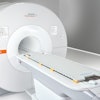Dear MRI Insider,
MRI is considered an extremely sensitive modality when it comes to breast cancer screening and is recommended for women at higher risk of the disease.
But since the exam is long and can induce claustrophobia -- two factors that may inhibit women from undergoing it -- researchers have developed an abbreviated breast MRI protocol that shortens it to three minutes.
The shortened protocol may make breast MRI accessible to more women, perhaps even those at average breast cancer risk who may be referred for it due to having dense tissue or palpable lumps. But is abbreviated breast MRI truly effective in this lower-risk population? In this edition's Insider Exclusive, we're highlighting a study conducted by a team from Bryn Mawr in Pennsylvania to address the question.
After you've read our exclusive, check out our additional MRI coverage, including a report about a devastating Russian missile attack on Vinnytsia, Ukraine, that killed and injured radiology staff.
We're also highlighting research that explores the following topics:
- Whether MRI is a necessary addition to CT for stroke patients
- How MRI and microultrasound compare for prostate cancer detection
- How diffusion-weighted MRI can help predict whether ductal carcinoma in situ will upstage after surgery
- How prostate specific membrane antigen-PET/CT compares with MRI for identifying prostate cancer
- How xenon-129 MRI exams illuminate the long-term effects of COVID-19
Finally, read what a presenter at the recent ECR in Vienna had to say about how the role of breast MRI may evolve over the next few years (spoiler alert: It will always have a role, said Dr. Pascal Baltzer of the Medical University of Vienna).
MRI contributes so much to the healthcare enterprise, and it's important to keep current on its many applications. We invite you to visit our MRI Community often to do just that.





















